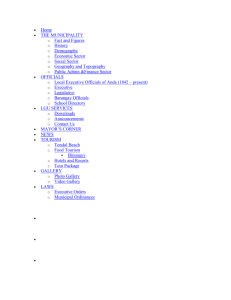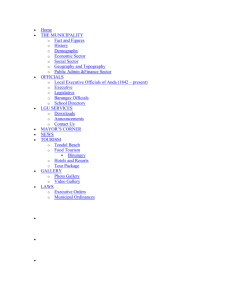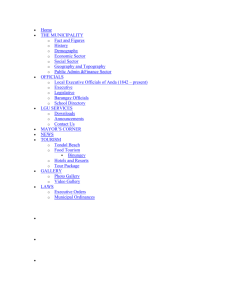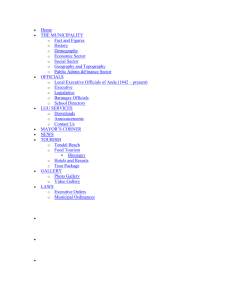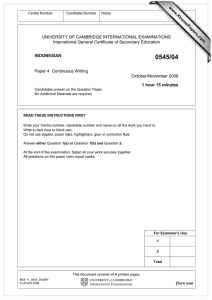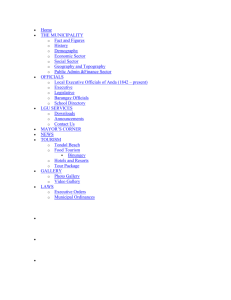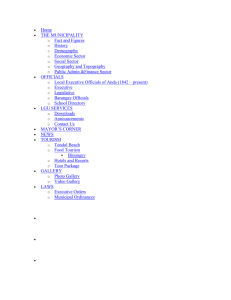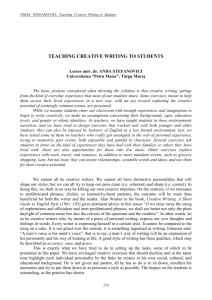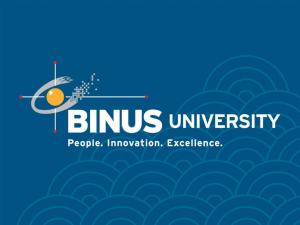Anda Dalam Proses P&P
advertisement
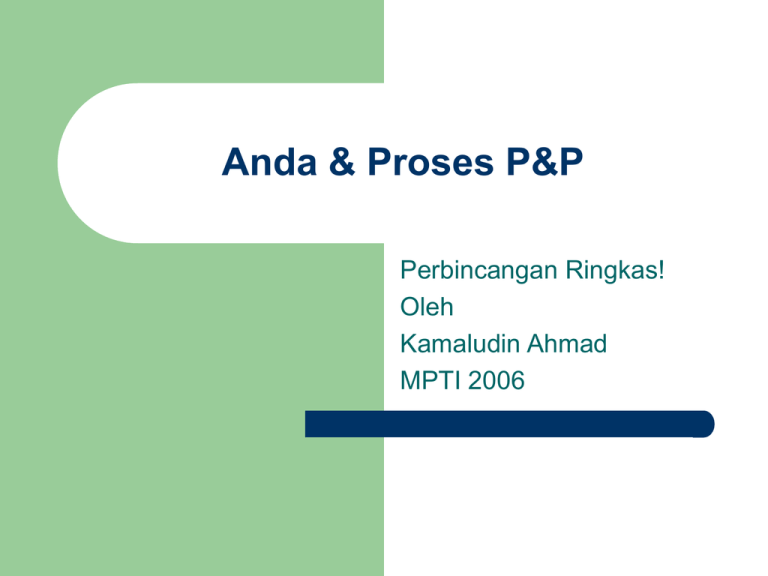
Anda & Proses P&P Perbincangan Ringkas! Oleh Kamaludin Ahmad MPTI 2006 Anda Apakah persepsi Anda terhadap sesuatu proses P&P? Apakah perkara yang Anda lihat dalam sesuatu proses P&P? Apakah yang Anda harapkan hasil dari sesuatu proses P&P Anda Apakah pengangan (prinsip) Anda supaya anda dapat menjelaskan dan memberi komen terhadapa sesuatu proses P&P? Anda & Proses P&P Apa pandangan Anda! Bagaimana sesuatu proses P&P seharusnya berlaku! Kenapa Anda berpendapat sedemikian? Beri alasan yang wajar! Teori Pembelajaran What is a theory? – – – – – A theory provides a general explanation for observations made over time. A theory explains and predicts behavior. A theory can never be established beyond all doubt. A theory may be modified. Theories seldom have to be thrown out completely if thoroughly tested but sometimes a theory may be widely accepted for a long time and later disproved. (Dorin, Demmin & Gabel, 1990) Rekabentuk Pengajaran (ID) – Cuma Model What is a model? – A model is a mental picture that helps us understand something we cannot see or experience directly. (Dorin, Demmin & Gabel, 1990) Teori Pembelajaran Dalam Rekabentuk Pengajaran (ID) Jonassen: – "...a constructivist design process should be concerned with designing environments which support the construction of knowledge, which ..." Is Based on Internal Negotiation Is Based on Social Negotiation Is Facilitated by Exploration of Real World Environments and Intervention of New Environments Results in Mental Models and provides Meaningful, Authentic Contexts for Learning and Using the Constructed Knowledge Requires an Understanding of its Own Thinking Process and Problem Solving Methods Modeled for Learners by Skilled Performers but Not Necessarily Expert Performers Requires Collaboration Among Learners and With the Teacher Provides an Intellectual Toolkit to Facilitate an Internal Negotiation Necessary for Building Mental Models The Assumptions of Constructivism knowledge is constructed from experience learning is a personal interpretation of the world learning is an active process in which meaning is developed on the basis of experience conceptual growth comes from the negotiation of meaning, the sharing of multiple perspectives and the changing of our internal representations through collaborative learning learning should be situated in realistic settings; testing should be integrated with the task and not a separate activity – (Merrill, 1991, in Smorgansbord, 1997) Proses P&P Seharusnya satu proses yang dialami oleh murid2 dalam persekitaran yang disediakan oleh guru, supaya murid2 dapat bertindak aktif (fizikal dan minda) dan seterusnya mereka dapat belajar, untuk menghasilkan makna, terhadap kefahaman, dan membina konsep apa yang dipelajari Perkara Utama dalam Proses P&P Bagaimana murid belajar dan dapat/boleh belajar Dapat mencipta makna terhadap kefahamaan dan membina konsep! Bagaiman perkara diatas akan dan boleh berlaku? Pegangan/Prinsip Anda Sebagai seorang guru Teori Pembelajaran seharusnya menjadi pegangan / panduan Anda untuk melihat bagaimana sesuatu perlakuan itu berlaku dalam sesatu fenomena. Apa Teori Pembelajaran yang Anda pegang dan guna pakai untuk membina proses P&P? Adakah Anda memerlukan Teori We Need Theories First, it helps us to envision new worlds. Few of us need help envisioning new worlds in the midst of the hype and exuberance of online learning proponents that flood the popular press, but we do need theory to help us envision how education can best take advantage of the enhanced communication, information retrieval, and management capability provided by the Net. It is all too easy to consider new innovations in a “horseless carriage” manner, and to attempt to develop new actions based on old adaptations to obsolete contexts. We Need Theories Second, a good theory helps us to make things. We need theories of online learning that help us to invest our time and limited resources most effectively. There are many opportunities, but always a critical shortage of resources, a situation which demands that we maximize the efficiency of our development and delivery efforts. This book contains a number of chapters with particular recommendations and suggestions for online course development and teaching. It is hoped that this chapter provides a theoretical “big picture” that will help make sense of these specific recommendations. We Need Theories Third, Wilson argues that a good theory keeps us honest. Good theory builds upon what is already known, and helps us to interpret and plan for the unknown. It also forces us to look beyond day-to-day contingencies and to ensure that our knowledge and practice of online learning is robust, considered, and ever expanding.
